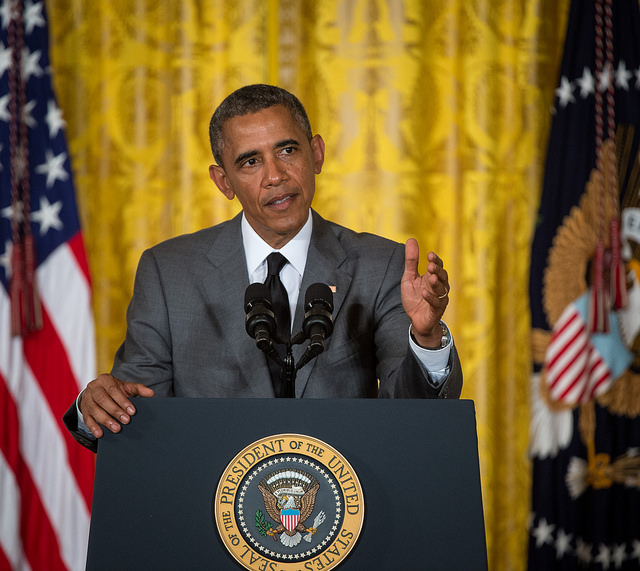Last Wednesday President Obama officially placed a ban on goods imported into the United States that are produced by slave labor. He signed a bill that includes a provision that bans imports of fish caught by slaves in Southeast Asia, gold mined by children in Africa and garments sewn by abused women in Bangladesh. This closes a loophole in an 85 year old tariff law that failed to keep slave produced products out of the U.S.
As long as domestic production couldn’t meet demand, the government has turned a blind eye to companies exporting these goods. The bill may be a game changer for U.S. Customs and Border Protection and U.S. Immigration and Customs Enforcement, the agencies responsible for preventing goods derived from slavery from entering the country. Last year, an exposé by the Associated Press found Thai companies were shipping seafood into the U.S. that was caught by enslaved workers. As a result of the reports, more than a dozen alleged traffickers were arrested, millions of dollars worth of seafood and vessels seized, and more than 2,000 trapped fishermen have been rescued.
“The old system that leaves the door open to child or slave labor if it’s used to make a product that isn’t made here in the U.S. — that system absolutely must end, and it will,” U.S. Senator Ron Wyden, an Oregon Democrat who spoke against the loophole on the Senate floor, said in a statement.
The legal gap has been in place for so long that politicians who pushed for the change aren’t exactly sure how it will affect businesses cited by human rights groups or the agencies responsible for blocking goods derived from slavery.
“Ending this provision gives those fighting forced labor the confidence they can challenge imports of these products without fear of being undermined by an archaic and outrageous provision of U.S. trade law,” Keith Chu, a senator who voted for the bill, said in an e-mail.
Sen. Sherrod Brown, D-Ohio said Wednesday that his office is already asking U.S. Customs and Border Protection to ensure they begin enforcing the new rules when the law takes effect in 15 days. “It’s embarrassing that for 85 years, the United States let products made with forced labor into this country, and closing this loophole gives the U.S. an important tool to fight global slavery”.
Article via Mashable, 25 February 2016; Mashable,12 February 2016
Photo: White House Maker Faire (201406180003HQ) by NASA HQ PHOTO [Creative Commons Attribution-NonCommercial-NoDerivs]
